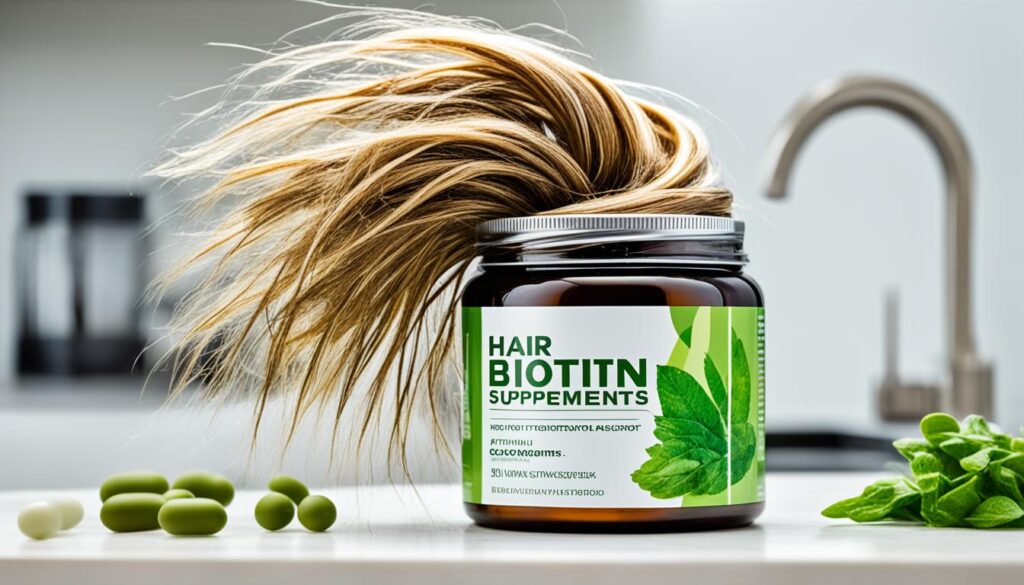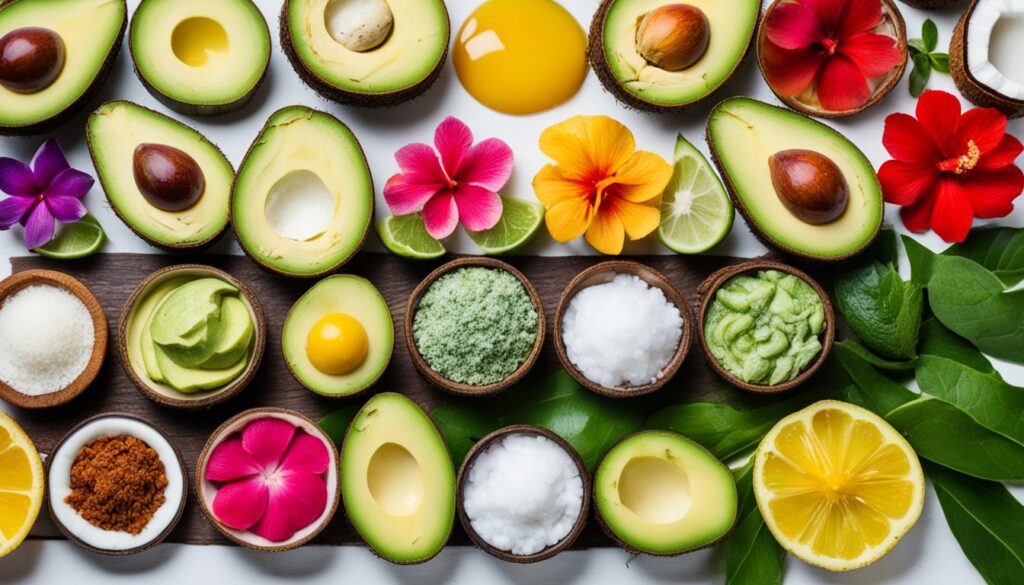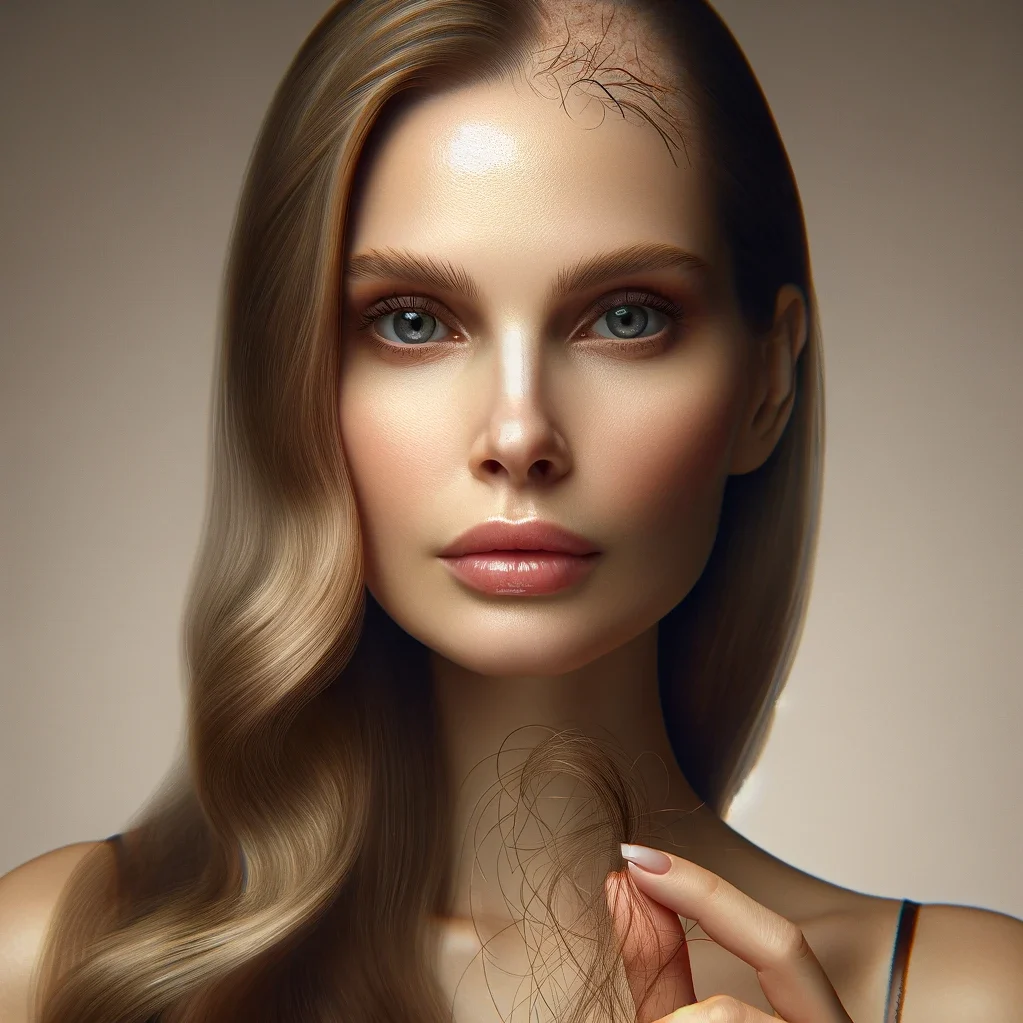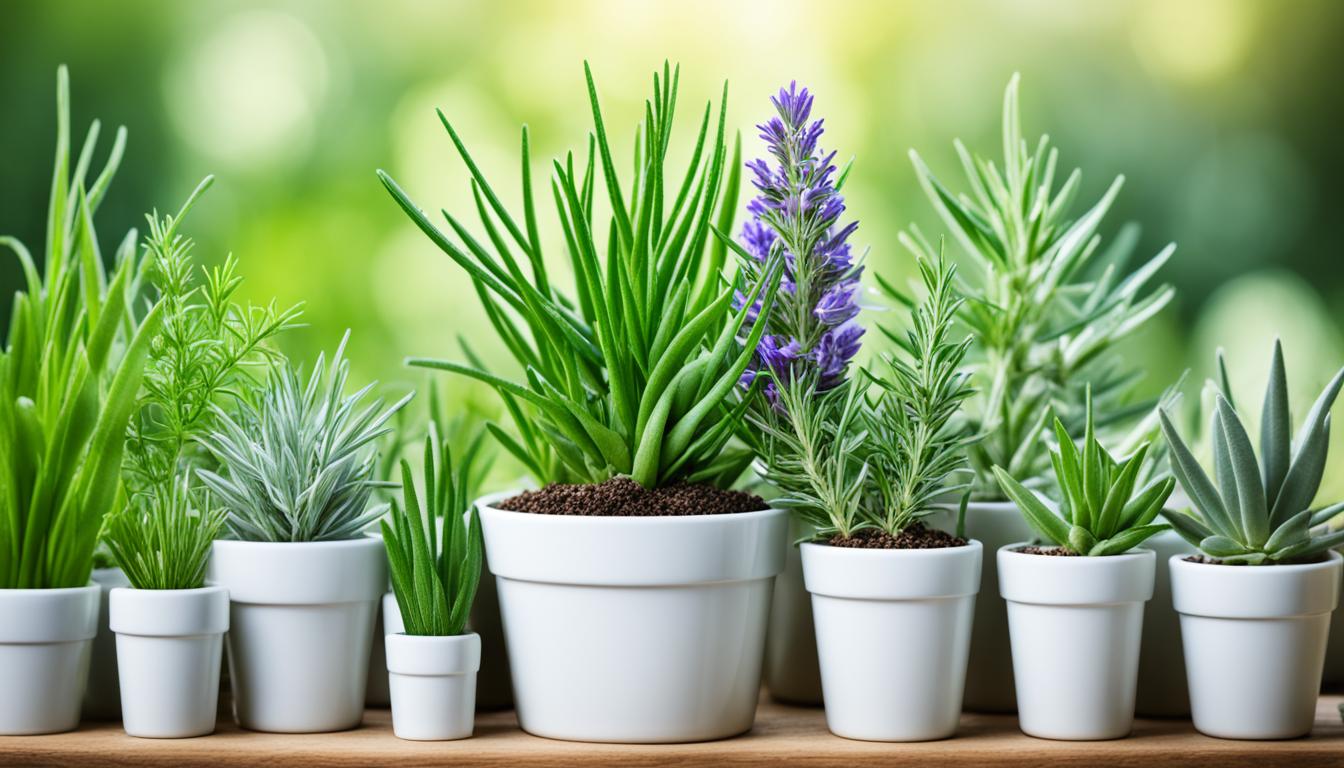Did you know that the average person loses between 50 to 100 strands of hair every day? Hair loss is a common issue that many people face, causing concerns about appearance and confidence. Understanding the reasons behind hair growth and loss can help us make informed decisions and adopt effective strategies to promote healthy hair growth.
Key Takeaways:
- Hair loss is a common concern, with the average person losing between 50 to 100 strands of hair daily.
- Understanding the reasons behind hair growth and loss is crucial for taking effective action.
- By adopting the right strategies and techniques, we can promote healthy hair growth and prevent hair loss.
- Seeking professional advice and maintaining a balanced lifestyle are key factors in achieving strong and voluminous hair.
- Stay tuned to learn more about debunking hair growth myths and discovering natural remedies for promoting hair growth.
Debunking Hair Care Myths
When it comes to hair care, there are several myths that need to be debunked. Let’s separate fact from fiction and uncover the truth behind these common misconceptions.
Myth 1: Cutting hair makes it grow faster or thicker
Contrary to popular belief, cutting your hair does not directly affect its growth rate or thickness. Hair growth occurs from the follicles in the scalp, not the ends of your hair. Trimming your hair regularly helps to remove split ends and prevent breakage, which can give the appearance of healthier and fuller-looking hair.
Myth 2: Shampooing every day is bad for hair
The frequency of shampooing depends on your hair type and scalp health. Contrary to the myth, shampooing every day is not necessarily damaging for your hair. People with oily scalps may benefit from daily washing to control excess sebum, while those with dry hair may not need to shampoo as frequently. Choosing the right shampoo for your hair type is key to maintaining a healthy scalp and promoting hair growth.
Myth 3: Using hair products causes baldness
Using hair products in moderation does not directly lead to baldness. However, excessive use of certain products can result in hair damage and scalp problems. It’s important to follow product instructions and avoid overloading your hair with excessive amounts of styling products, as this can weaken the hair strands and lead to breakage. Stick to a balanced hair care routine to maintain healthy hair growth.
Myth 4: Wearing hats causes hair loss
Wearing hats, in general, does not directly cause hair loss. However, wearing tight hats that create friction can damage the hair strands over time. It’s important to choose hats that fit properly and avoid wearing them too tightly. Opt for hats made with breathable materials to allow proper airflow to the scalp. Taking care of your hair and scalp health is essential for maintaining healthy hair growth.
“The truth is that cutting hair doesn’t directly affect its growth rate or thickness. Hair growth occurs from the follicles in the scalp, not the ends of your hair.”
| Myths | Truths |
|---|---|
| Cutting hair makes it grow faster or thicker | Hair growth occurs from the scalp, not the ends. Trimming helps prevent breakage and split ends, giving the appearance of healthier and fuller hair. |
| Shampooing every day is bad for hair | The frequency of shampooing depends on hair type and scalp health. Daily washing may be necessary for oily scalps, while less frequent shampooing is suitable for dry hair. |
| Using hair products causes baldness | Moderate use of hair products does not directly lead to baldness, but excessive use can result in hair damage and scalp problems. |
| Wearing hats causes hair loss | Wearing hats does not cause hair loss, but tight hats can create friction and damage the hair strands. |
It’s important to separate hair care facts from myths to promote healthy hair growth. By understanding the truth behind these common misconceptions, you can develop a proper hair care routine tailored to your specific needs. Remember, maintaining a balanced diet, practicing proper hair care techniques, and seeking professional advice when needed are all key to achieving optimal hair health.
Genetic Factors and Hair Loss
Hair loss is a complex issue influenced by genetic factors. Contrary to popular belief, it is not solely determined by the maternal side. In fact, genes inherited from both the mother and father can contribute to hair loss. Multiple genes are involved in hair thinning and hair loss, and various types of hair loss exist.
If you are experiencing hair loss, it is essential to consult with a dermatologist or a trichologist. They can provide a proper diagnosis and develop a personalized treatment plan specifically tailored to your needs. While genetics play a significant role in hair loss, it’s important to note that lifestyle factors and external influences can also impact hair growth.
Fortunately, there are ways to stimulate hair growth and improve the condition of your hair. One effective approach is to focus on a balanced diet and proper nutrition. Essential vitamins and minerals such as biotin, vitamin E, and iron are known to support healthy hair growth. Incorporating hair growth vitamins and supplements into your routine can also provide the necessary nutrients to promote hair health.
By adopting a comprehensive approach that considers both genetic and environmental factors, you can take steps towards stimulating hair growth and achieving the luscious locks you desire.
The Role of Genetics in Hair Loss
Genetic factors contribute to the susceptibility of hair loss and determine the pattern and progression of hair thinning. Researchers have identified genes associated with male pattern baldness, female pattern hair loss, and other types of hair loss. These genes can impact the sensitivity of hair follicles to hormones, disrupt the hair growth cycle, or affect the development and maintenance of hair follicles.
Genetic factors influence hair loss, but they don’t necessarily dictate your fate. With the right care and interventions, you can take control of your hair health and stimulate hair growth.
While genetics provide a foundation for understanding hair loss, it’s essential to consider other contributing factors as well. Lifestyle choices, such as stress levels, diet, and hair care practices, can influence the health and growth of your hair. Therefore, it’s crucial to maintain a holistic approach to promote hair growth and overall well-being.
Hair Growth Vitamins and Supplements
| Vitamin/Supplement | Role in Hair Growth | Food Sources |
|---|---|---|
| Biotin | Supports hair structure and promotes hair growth | Egg yolks, nuts, seeds, avocados |
| Vitamin E | Antioxidant properties that promote scalp health and hair growth | Almonds, spinach, sunflower seeds |
| Iron | Helps deliver oxygen to the hair follicles for proper growth | Red meat, spinach, lentils |
Integrating these vitamins and minerals into your diet or as supplements can provide the necessary nutrients to support hair growth. However, it’s important to consult with a healthcare professional before starting any new supplements to ensure they are suitable for your specific needs.

Stimulating Hair Growth Naturally
In addition to incorporating hair growth vitamins and supplements, there are natural remedies and practices that can help stimulate hair growth. Scalp massages increase blood circulation to the hair follicles, promoting hair growth. Essential oils, such as lavender and rosemary, have shown promising results in stimulating hair growth when applied to the scalp. However, it’s important to dilute essential oils properly before using them to avoid skin irritation.
By taking a holistic approach that combines proper nutrition, targeted supplements, and natural remedies, you can actively stimulate hair growth and enhance the overall health of your hair. Remember, everyone’s hair growth journey is unique, so be patient and consistent in your efforts to achieve optimal results.
The Impact of Hair Care Practices
Hair care practices play a significant role in promoting hair growth and maintaining healthy locks. Contrary to popular belief, shampooing every day is not necessarily detrimental to hair growth. The frequency of shampooing depends on individual factors such as hair type and scalp health.
To achieve optimal hair growth, it is essential to choose the right shampoo and conditioner that suits your hair needs. Look for products that are gentle, nourishing, and free from harsh chemicals. A well-selected hair care routine, including regular shampooing and conditioning, can help stimulate hair growth and maintain an ideal scalp environment.
For those seeking natural hair growth remedies, there are a variety of effective options available. Essential oils such as rosemary, peppermint, and lavender have been found to promote hair growth. Massaging the scalp with these oils can improve blood circulation and stimulate the hair follicles.
Quotes:
“Choosing the right shampoo and conditioner and maintaining a proper hair care routine is essential for promoting hair growth.” – Expert Stylist
“Incorporating techniques like avoiding heat styling and protecting the hair from environmental damage can help promote healthy hair growth.” – Renowned Dermatologist
Additionally, incorporating hair growth techniques into your routine can make a significant difference. Avoiding excessive heat styling, such as using straighteners or curling irons, can prevent damage to the hair strands and promote healthier growth. It is also important to protect your hair from environmental factors such as pollution and UV radiation by wearing a hat or using protective sprays.
Overall, adopting proper hair care practices, including choosing the right products, incorporating natural remedies, and utilizing hair growth techniques, can help promote hair growth and maintain strong and healthy locks.

The Science Behind Hair Growth
Understanding the science behind hair growth is essential for promoting healthy hair. Hair follicles, the mini-organs responsible for hair growth, go through cycles of growth and rest. Stem cells within the hair follicles play a crucial role in the regeneration and cycling of hair. Several signaling pathways, such as Wnt/beta-catenin and BMP/TGF-beta, regulate stem cell activation and hair growth.
Factors like growth factors and extracellular vesicles also contribute to the development and maintenance of hair follicles. Numerous studies have shed light on the molecular mechanisms and genetic factors involved in both male and female pattern baldness. However, there is still ongoing research to fully understand the intricate details of hair growth and to develop targeted treatments.
Research into hair growth has also explored the potential benefits of hair growth vitamins and natural remedies. These vitamins and natural remedies can help support the hair growth process and promote healthier hair.
Key Factors in Hair Growth
| Factor | Description |
|---|---|
| Stem Cells | Play a crucial role in hair regeneration and cycling |
| Signaling Pathways | Regulate stem cell activation and hair growth |
| Growth Factors | Contribute to hair follicle development and maintenance |
| Extracellular Vesicles | Have a role in hair follicle maintenance |
| Genetic Factors | Influence both male and female pattern baldness |
By understanding the science behind hair growth and incorporating effective techniques, individuals can take proactive steps towards achieving and maintaining healthy hair.
Hair Follicle Cycle and Hair Loss
The hair follicle cycle consists of three phases: growth, transition, and resting. Disruptions in this cycle can lead to increased hair loss. Understanding the hair follicle cycle is important for debunking hair growth myths and identifying effective hair growth techniques.
Hair loss can be caused by various factors, including genetic factors, hormonal changes, and certain medical conditions. For example, male pattern baldness is associated with androgenetic alopecia and the inheritance of specific genes.
Research has also revealed the role of various molecular signaling pathways and gene expression alterations in hair loss. This knowledge is crucial for developing targeted treatments and interventions.
Hair Growth Myths: Debunked
- Myth: Cutting hair makes it grow faster or thicker.
- Fact: Hair growth occurs from the follicles in the scalp, not the ends. Trimming only removes split ends and prevents breakage, giving the appearance of fuller hair.
- Myth: Shampooing every day is bad for hair.
- Fact: The frequency of shampooing depends on individual factors such as hair type and scalp health. Some people with oily scalps may need to shampoo daily, while others with dry hair may not.
- Myth: Using hair products causes baldness.
- Fact: Hair products do not directly cause baldness. However, excessive use can lead to hair damage and scalp problems.
Importance of a Healthy Scalp
A healthy scalp is essential for promoting hair growth and maintaining the overall health of the hair. The scalp serves as the foundation for the hair follicles and plays a vital role in the hair growth cycle. To ensure optimal hair growth, it is crucial to maintain a clean and well-balanced scalp through proper shampooing and conditioning.
Choosing the right shampoo that suits both the scalp and hair type is key to promoting hair growth and preventing scalp issues. Look for shampoos that are specifically formulated to enhance hair growth and strengthen the scalp. These shampoos often contain beneficial ingredients such as vitamins, minerals, and natural extracts that nourish and stimulate the scalp.
Regular scalp massages are another effective technique for promoting healthy hair growth. Massaging the scalp improves blood circulation, which, in turn, enhances nutrient delivery to the hair follicles. You can use your fingers or a scalp massager to gently massage the scalp in circular motions.
Another way to support a healthy scalp is through scalp exfoliation. This process removes dead skin cells and product buildup, allowing the scalp to breathe and function optimally. You can exfoliate the scalp using a gentle scrub or by incorporating exfoliating ingredients, such as tea tree oil or salicylic acid, into your hair care routine.
It is important to address any scalp conditions promptly and seek professional advice for any scalp-related concerns. Dermatologists and trichologists can provide personalized recommendations and treatments to optimize scalp health and promote hair growth.
Conclusion
Understanding the intricacies of hair growth and debunking common hair growth myths is crucial for achieving healthy and strong hair. The hair growth cycle, genetic factors, and scalp health all play a role in hair growth and hair loss.
By adopting proper hair care practices, maintaining a balanced diet, reducing stress levels, and seeking professional advice, you can stimulate hair growth and optimize your chances of achieving luscious locks. It is important to approach hair growth from a holistic standpoint, taking into consideration individual factors for the best results.
Remember, natural hair growth remedies are available and can be beneficial in promoting hair growth. However, it is essential to stay informed and be proactive in your approach to hair care. By staying informed, you can debunk hair growth myths, make informed choices, and unlock the secrets to healthy and vibrant hair.
FAQ
What is the hair growth cycle?
The hair growth cycle consists of three phases: the anagen phase (growth phase), the catagen phase (transition phase), and the telogen phase (resting phase).
What causes disruptions in the hair growth cycle?
Disruptions in the hair growth cycle can be caused by genetic factors, nutritional deficiencies, or stress.
How can I support the hair growth cycle?
To support the hair growth cycle, it is important to maintain a balanced diet, reduce stress levels, and practice proper hair care.
Does cutting hair make it grow faster or thicker?
No, cutting hair does not make it grow faster or thicker. Hair growth occurs from the follicles in the scalp, not the ends.
Is shampooing every day bad for hair?
The frequency of shampooing depends on hair type and scalp health. Some people with oily scalps may need to shampoo daily, while others with dry hair may not.
Do hair products cause baldness?
No, using hair products does not cause baldness. However, excessive use can result in hair damage and scalp problems.
Does wearing hats cause hair loss?
Wearing hats does not directly cause hair loss. However, tight hats can create friction and damage the hair strands.
Is hair loss solely determined by genes from the maternal side?
No, hair loss is influenced by genetic factors from both the maternal and paternal sides.
How can I stimulate hair growth?
Stimulating hair growth can be achieved through a balanced diet, proper nutrition, and the use of hair growth vitamins and supplements.
Are there any natural remedies for hair growth?
Yes, essential oils and scalp massages are natural remedies that can aid in stimulating hair growth.
How can I promote healthy hair growth?
Promoting healthy hair growth can be done by choosing the right shampoo and conditioner, avoiding heat styling, and protecting the hair from environmental damage.
What are the factors that regulate hair growth?
Signaling pathways, such as Wnt/beta-catenin and BMP/TGF-beta, regulate stem cell activation and hair growth. Growth factors and extracellular vesicles also contribute to hair follicle development and maintenance.
What causes hair loss?
Hair loss can be caused by genetic factors, hormonal changes, and certain medical conditions. Male pattern baldness, in particular, is associated with androgenetic alopecia and the inheritance of specific genes.
How can I maintain a healthy scalp?
Maintaining a clean and well-balanced scalp through proper shampooing and conditioning is important. Scalp massages and exfoliation can also improve blood circulation and support healthy hair growth.
What can I do to achieve healthy and strong hair?
Understanding the intricacies of hair growth, adopting proper hair care practices, maintaining a balanced diet, and reducing stress levels can all contribute to achieving healthy and strong hair.


1 thought on “Understanding Grow Hair Why – Tips & Insights”